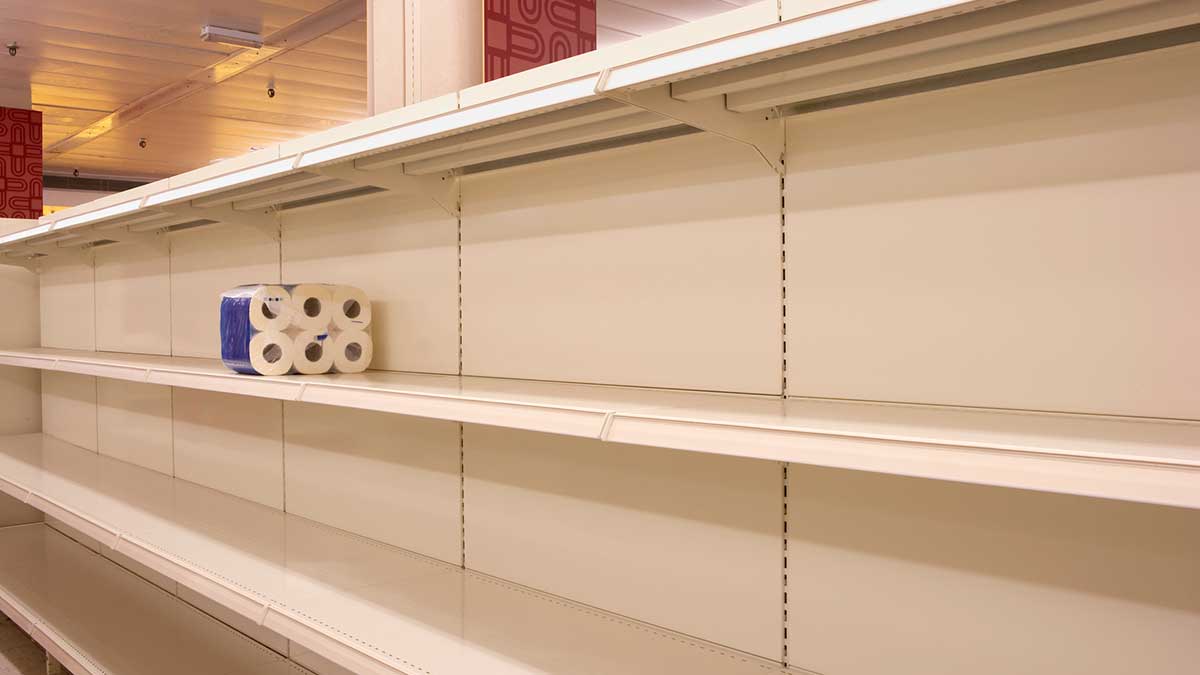Panic buying has kept Australia’s retail sector chugging along, but economists worry about what happens next

Australian supermarkets are selling out of products but it won’t save the retail sector. Getty Images.
A rush to stock up on groceries and alcohol has been the one saving grace as Australian merchants struggle.
The latest ABS preliminary retail figures show that supermarkets have ridden a panic-buying wave as their turnover swells by 22.6 per cent on last year’s levels, and helping push overall retail activity up by more than 8 per cent — the largest monthly growth on record.
However, the “surprisingly strong” spending doesn’t look set to last, according to BIS Oxford Economics chief economist Sarah Hunter.
“The difference between the growth in total spending and the food and alcohol sub-category, suggests that discretionary spending has been severely impacted by the social distancing measures,” Hunter said in a statement issued to Business Insider Australia, noting this should be confirmed in early May when data is finalised.
While demand for products like toilet paper and tissues soared alongside home office products, it came at the expense of less essential shopping. The ABS noted “strong falls” in spending at cafes, restaurants, clothing and footwear.
“Looking ahead, the boost to supermarket spending is likely to subside, as households come to the end of stocking up spending. Without this support retail turnover is expected to fall sharply in April; the drag from the collapse in discretionary spending will remain, and the impact of job losses, reduced hours and wage cuts will also begin to bite.”
While Australia Post is struggling to keep up with an online shopping boom that has seen parcel volumes double in the last four weeks, it may be short-lived.
As essentials stocking falls away and economic confidence wanes, Hunter expects Australians will increasingly be counting their pennies and avoiding unnecessary spending.
“Overall, the economy is likely to shrink by around 12% in the June quarter,” she said.
The resulting fall in wages, paired with rising unemployment, is likely to hit retailers ever harder in the coming months.
This article first appeared on Business Insider Australia, Australia’s most popular business news website. Read the original article. Follow Business Insider on Facebook or Twitter.
UNLOCK INSIGHTS
Discover the untold stories of emerging ASX stocks.
Daily news and expert analysis, it's free to subscribe.
By proceeding, you confirm you understand that we handle personal information in accordance with our Privacy Policy.








